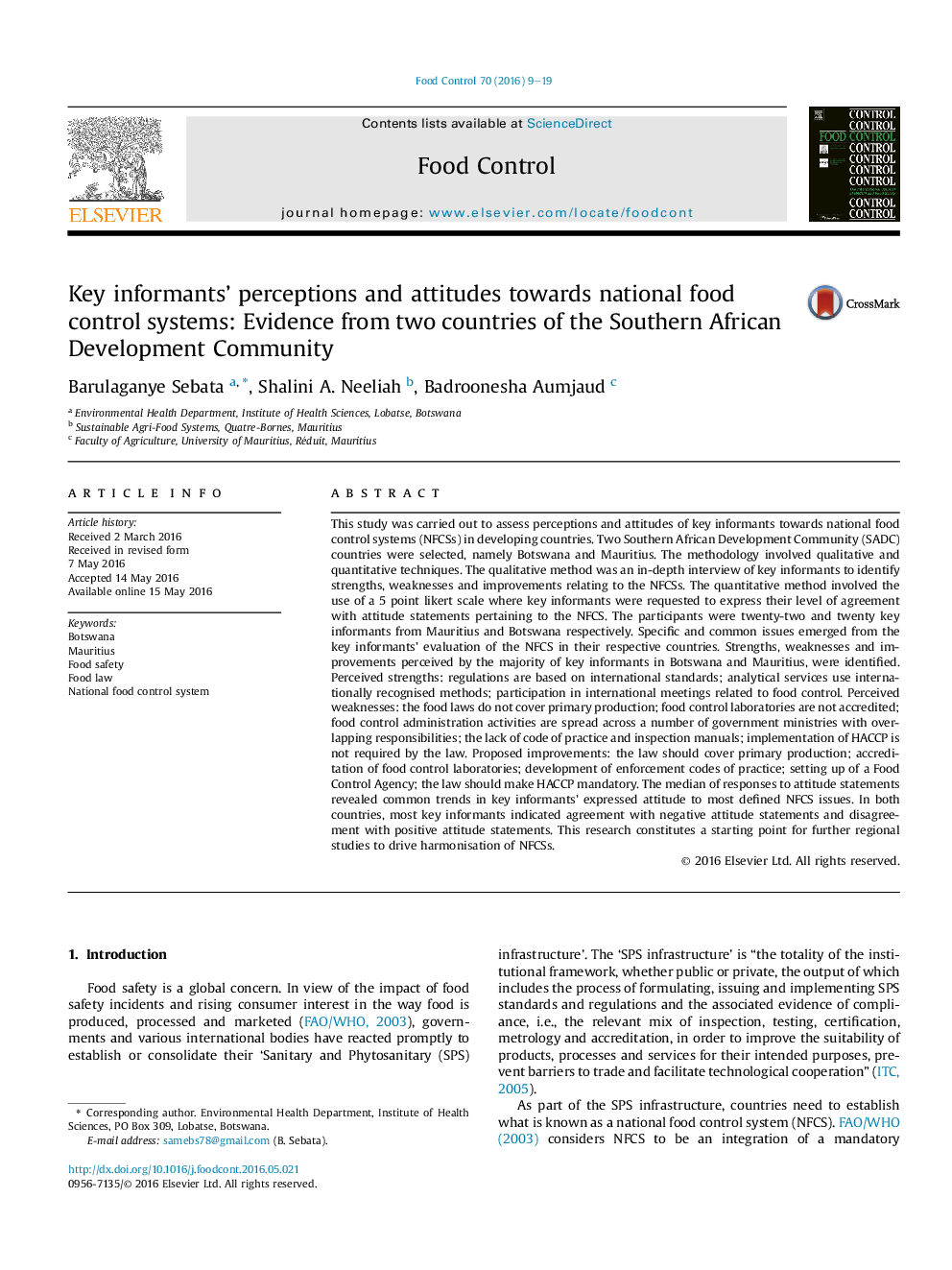| کد مقاله | کد نشریه | سال انتشار | مقاله انگلیسی | نسخه تمام متن |
|---|---|---|---|---|
| 4558964 | 1628392 | 2016 | 11 صفحه PDF | دانلود رایگان |

• This study assessed perceptions and attitudes of key informants towards NFCSs.
• Mixed-method approach was used for quantifying and understanding of issues.
• Common strengths included use of international standards in food control.
• Weaknesses are multiple agency food control administration with overlapping roles.
• Median responses to attitude statements revealed common trends on NFCS issues.
This study was carried out to assess perceptions and attitudes of key informants towards national food control systems (NFCSs) in developing countries. Two Southern African Development Community (SADC) countries were selected, namely Botswana and Mauritius. The methodology involved qualitative and quantitative techniques. The qualitative method was an in-depth interview of key informants to identify strengths, weaknesses and improvements relating to the NFCSs. The quantitative method involved the use of a 5 point likert scale where key informants were requested to express their level of agreement with attitude statements pertaining to the NFCS. The participants were twenty-two and twenty key informants from Mauritius and Botswana respectively. Specific and common issues emerged from the key informants’ evaluation of the NFCS in their respective countries. Strengths, weaknesses and improvements perceived by the majority of key informants in Botswana and Mauritius, were identified. Perceived strengths: regulations are based on international standards; analytical services use internationally recognised methods; participation in international meetings related to food control. Perceived weaknesses: the food laws do not cover primary production; food control laboratories are not accredited; food control administration activities are spread across a number of government ministries with overlapping responsibilities; the lack of code of practice and inspection manuals; implementation of HACCP is not required by the law. Proposed improvements: the law should cover primary production; accreditation of food control laboratories; development of enforcement codes of practice; setting up of a Food Control Agency; the law should make HACCP mandatory. The median of responses to attitude statements revealed common trends in key informants’ expressed attitude to most defined NFCS issues. In both countries, most key informants indicated agreement with negative attitude statements and disagreement with positive attitude statements. This research constitutes a starting point for further regional studies to drive harmonisation of NFCSs.
Journal: Food Control - Volume 70, December 2016, Pages 9–19